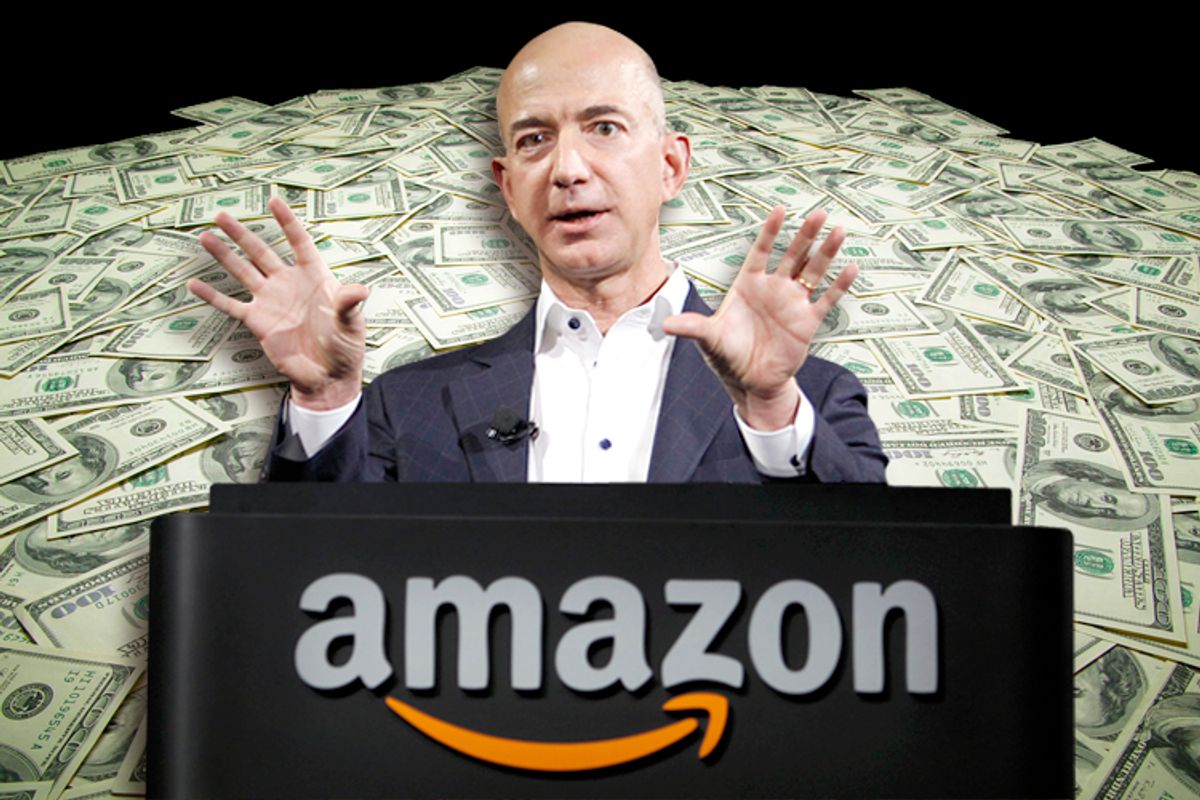Before reading George Packer’s recent New Yorker article on Amazon and its relationship with the publishing industry, I hadn’t considered what forces might be responsible for making a book more or less visible on Amazon. I’d only wondered why my debut novel was being buried beneath a pile of books that were about as far from my literary ambitions as possible.
I first went looking for my book on Amazon months before its August 2014 release date, while I was still working on final edits. This is a self-absorbed thing to do, I know, but judging from all the posts I see on Facebook (Hey, you can pre-order my book on Amazon!), I know I’m not alone — and for good reason perhaps. Writing is a solitary act that demands you persevere through innumerable hardships and rejections; so when at last you see you have your own little corner of cyberspace, all those years of hard work and high seriousness feel a little bit more well-spent, and you’re one step closer to a realized dream.
Or at least, that’s the hope.
The first time I searched for my novel, nothing came back. A couple weeks later, same thing. But then, after my third or fourth attempt, success.
To a point.
I typed in the title — "SWEETNESS #9" — thinking I’d only have to put in a few letters before the search engine would autocomplete it. Not so. Next, thinking the computer might need a little help, I added my name: STEPHAN EIRIK CLARK. Then I hit ENTER, and though my novel did come up, it was at the end of a very long list of books, all of them related. Maybe you’ve read one or two?
Sweet Valley High? Sweet Valley High?
I felt ready to channel the words of the great unifier, Jonathan Franzen. “I’m writing in the high-art literary tradition!” I wanted to scream at my computer. “And you’re going to lump me in with "Sweet Valley High" and "Sweet Valley Confidential — The Sweet Life?”
Needless to say, I didn’t encourage people to look for the book online. I felt ready to take up the cause of Common Good Books in my hometown of St. Paul and rally to the defense of America’s great independent bookstores. They didn’t make space on their front tables for a novel months before its release date; but they also didn’t do the equivalent of having Gogol and DeLillo carpool with Laverne & Shirley.
Was it because I was a debut novelist that I was being treated so poorly? Or were things as they were during the Red Scare and the purges of Stalin, when all it took was a single whispered word, maybe just a shard of a single whispered word – “Sweet!” – for your fate to be thrown in with the dead and the dying and the damned.
I didn’t have a clue until I read Packer’s article – in particular, this one part, as summarized by the Los Angeles Times:
“When a buyer searches for a book on Amazon.com, the results are partly determined by the fees paid by publishers; publishers pay Amazon a percentage of the profits they make through the online store each year; those percentages have gone up; although publishers may be squeezed by Amazon, they remain dependent on the company for as much as 30% of their sales, a number that’s still growing."
I don’t know if my publisher, Little, Brown, has given Amazon a white envelope thick with green bills, but in recent weeks my novel has distanced itself from Sweet Valley High (“What do you mean you broke up with Scott!”). Now, whenever you search for the book, you’ll find its company more appropriate, if still not quite literary. Most recently, I found the novel closely linked to "Pure, White, and Deadly: How Sugar Is Killing Us and What We Can Do to Stop It."
Not bad for a novel that’s set against the backdrop of the flavorings industry and explores the consequences of a highly questionable artificial sweetener.
Even better, when Amazon showed me other items related to my search for “Sweetness 9” (the site doesn’t recognize the # sign), it included Propylene Glycol, the ideal carrier for artificial flavorings.
The computer is getting smarter, it seems. I suppose you only need to feed it a little cash.

Shares